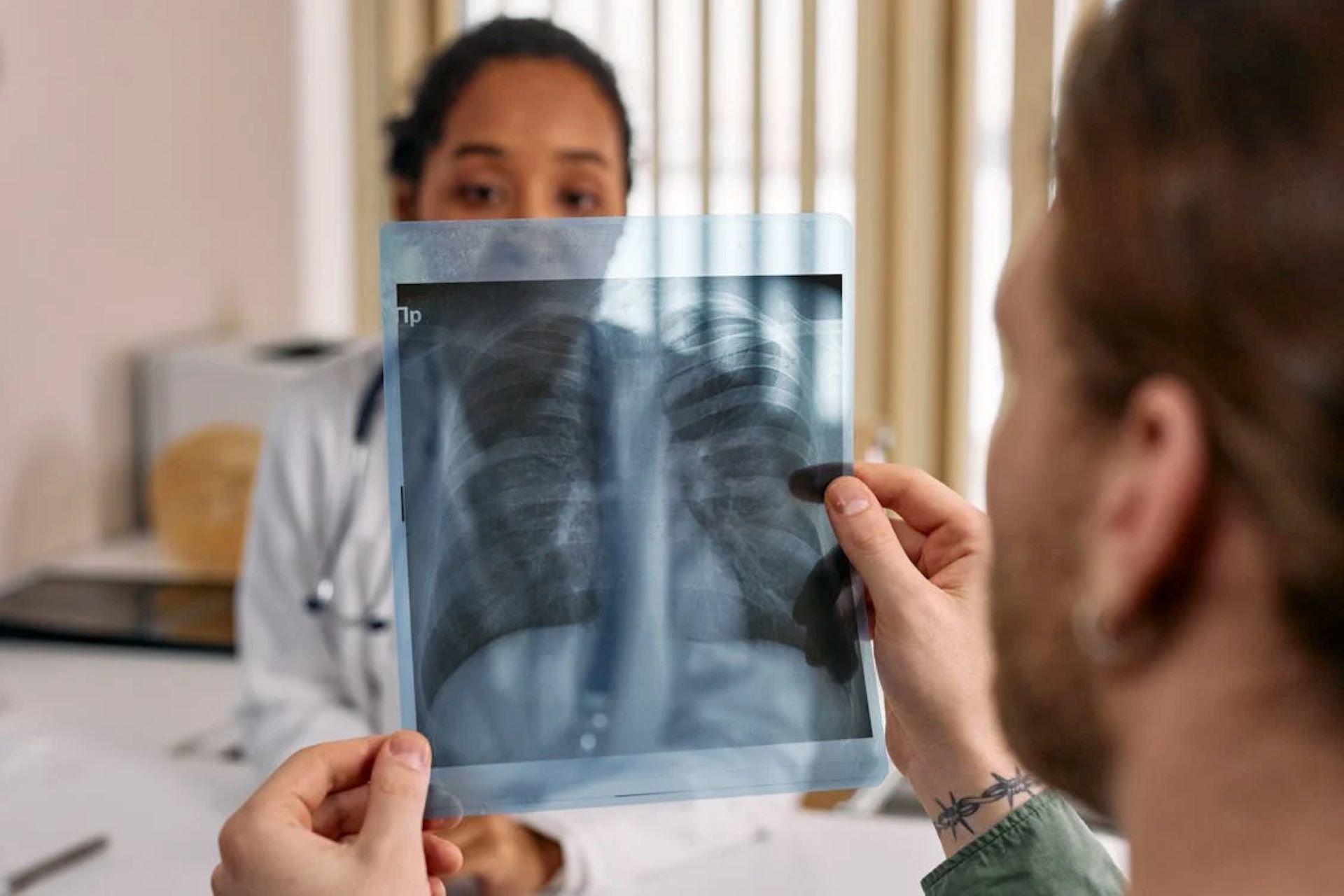At the beginning of our journey into medicine, at a young age, we often see ourselves in the white cloak helping patients, but we don't think too much about the exact kind of work we will be carrying out.
This question typically comes later, towards the end of our years of schooling, and we begin to understand the profession a little more.
While we might consider the medical specialties we wish to pursue, we may still need help finding an answer. This question will require an equal balance of looking inward and outward and finding what change we see ourselves making in the world.
Entering the field of medicine presents many opportunities in specialities and types of physicians. Study medicine in the UK, and delve into fields like psychiatry, dermatology, oncology, gastroenterology, or radiology.
Selecting a specialisation is a decision that involves aligning your interests, skills, and goals with the unique requirements and intricacies of each medical sector.
The journey commences with exploration during school and foundational training years. This period allows you to gain hands-on experience in specialities, evaluate your compatibility with each field, and comprehend the training criteria.
Whether you aspire to pursue a career in anesthesiology, psychotherapy, paediatrics or any other area, careful deliberation and an open mindset are essential for discovering your niche within the realm of specialities.


Overview of Medical Specialisations
The medical field in the UK encompasses diverse specialities, each with its unique focus and training requirements. The General Medical Council (GMC) approves curricula and assessments for a staggering 65 specialities and 31 sub-specialities, ensuring high-quality training standards across the board.
The GMC approves curricula and assessments for a staggering 65 specialities and 31 sub-specialities, ensuring high-quality training standards across the board.
The relevant Royal Colleges, such as the Royal College of Anaesthetists, Royal College of Emergency Medicine, Royal College of General Practitioners, Royal College of Physicians, and Royal College of Surgeons, manage the training and registration for each speciality.
Medical Career Path - How To Specialise
Let's look at the path you will follow if you choose to pursue a career as a medical professional right here in the UK.
Your path to qualifying in a medical speciality starts after finishing the two-year Foundation Programme; at this stage, you'll need to apply for speciality training through a recruitment process.
This includes submitting applications, participating in interviews, and potentially undergoing assessments of your chosen speciality.
As you can see from the above clip, the decision of what speciality you decide to pursue will have both immediate and long-term ramifications for your life. Choosing a suitable option that is both suitable and interesting will lead to a more fulfilling career.
Depending on your speciality choice, you may enter a core training period lasting 2-3 years. This phase provides training that exposes you to aspects of the speciality, helping you develop crucial skills and knowledge.
The path to becoming a Doctor in the UK doesn't end with core training. Afterwards, higher speciality training awaits. In some fields, such as general practice, you'll move directly from core training to speciality training, which can last 3-7 years.
On the other hand, in other specialities, you'll finish core training before applying competitively for higher speciality training that typically spans 4-6 years.
During speciality training, you'll delve into advanced knowledge and skills relevant to your chosen area of expertise while working under the guidance of experienced consultants.
Furthermore, examinations and assessments play roles in your journey. You must pass assessments by the appropriate Royal College or faculty to showcase your competency.
Medicine is an art whose magic and creative ability have long been recognized as residing in the interpersonal aspects of the patient-physician relationship.
Francis Weld Peabody
After completing all training, including exams and assessments, you will receive a Certificate of Completion of Training (CCT). This certification allows you to apply for NHS or private healthcare sector consultant roles.
It's important to note that the training process and length may differ based on the chosen speciality. While some specialities, like practice, have training periods, others, such as surgery or psychiatry, may require longer training. Understanding each speciality's training pathways is key to effectively managing your medical career.

Explore Your Options
While the decision to specialise can seem daunting, there are plenty of resources to ensure that you make the most informed decision possible. Many of these will give you an idea of your typical day in the respective role and whether or not it resonates with you.
Websites like NHS Health Careers, NHS Specialty Recruitment, the Academy of Medical Royal Colleges, and the British Medical Association (BMA) offer insights into medical fields. The BMA's Specialty Explorer tool matches your preferences with specialities and provides personalised reports.
It's crucial to gain hands-on experience. Connect with professionals, seek work opportunities, and get a feel for life in different medical areas. Exploring paths can also be beneficial; some junior doctors take breaks from career progression to gain new perspectives.
Getting advice from trusted sources is key. Research and contact postgraduate deaneries, the BMA, or the relevant royal college for guidance.
'Taster' sessions during your two years as a Foundation doctor offer another chance to explore options. Remember that choosing a speciality is a decision that will shape your future career path.

There is also no need to rush this decision. Take your time, use all resources, and don't rush into a choice once you've carefully considered all possibilities. By reflecting on what drives you, your strengths, and your goals, you'll find the fit for your aspirations.
Assess Your Personality And Skills
Let's delve into the article's meat and acknowledge the importance of looking inward in your search for a suitable medical specialisation.
Remember that you will be investing much time and money into your career, so you must choose a specialisation suited to your personality and preferences. Finding the right fit will significantly enhance your enjoyment of work and give you a greater sense of fulfilment in the work that you carry out over the years.
Choosing the field goes beyond just academic accomplishments; it's about matching your personality traits, preferences and abilities with the unique requirements of each speciality.
Conducting a self-assessment is key to making this decision. It's vital to consider how well your personality aligns with specialities, as each field tends to attract individuals with traits.
For instance, surgeons typically thrive in paced, high-pressure settings, while psychiatrists excel in patient-focused environments. Reflect on your strengths, communication style and work preferences to pinpoint the specialities that best suit your personality.
Assessing your professional medical skills and qualifications is also crucial.
The Clinical and Professional Skills Assessment (CPSA) administered by schools as part of the Medical Licensing Assessment (MLA) alongside the Applied Knowledge Test (AKT) plays a role in showcasing your clinical abilities and professionalism.
Excelling in the CPSA can indicate your competency for specialities by highlighting your skills, knowledge base and professional demeanour. Moreover, it's important to consider the competitiveness of the different fields. Some specialities have limited training spots, leading to competition during the application process.
It's essential to evaluate your application strength compared to candidates by considering factors like academic performance, research background and involvement in extracurricular activities.
By assessing these factors, you can confidently choose the fields that resonate most with your skills and select a role where you will ultimately be happier. You'll greet your patients with a smile for years after finding a specialisation that suits your interests and lifestyle.
Gain Practical Experience
Getting hands-on experience is crucial for exploring fields and confirming career goals. To fulfil the requirements of UK schools, applicants need to have experience in a service role, whether paid or voluntary, in healthcare or a related area, along with direct exposure to healthcare settings.
Look for opportunities in healthcare environments like GP practices, hospitals and even abroad. Organisations such as Volunteering England Kissing it Better St Johns Ambulance and the Royal College of General Practitioners can help find placements.
When engaging in these experiences, it's important to make the most of them. Always aim to:
- Dress professionally
- Maintain an attitude at all times
- Respect confidentiality
- Follow guidelines to ensure ethical behaviour
- Interact with various staff members to understand their roles and responsibilities within the healthcare environment
Take the initiative by asking questions and actively seeking learning opportunities to maximise your time there. Doctors are encouraged to provide medical work experience opportunities for students. However, it's crucial to consider the time commitment and ensure that there is capacity to offer a learning experience for the student.
By facilitating opportunities, doctors support aspiring healthcare professionals while promoting a culture of education and mentorship within the medical field.

Consider Training Requirements
When deciding on a field to specialize in, it's crucial to consider how the training requirements align with your lifestyle preferences and career aspirations. Various factors play a role in this decision-making process. However, laying a strong foundation with the best medicine A Levels can ultimately give you more options down the road, regardless of the specialty you choose.
Firstly, the amount of on-call duty can vary significantly between specialities, affecting your balance between work and personal life. Surgical fields often involve on-call shifts, whereas areas like dermatology or psychiatry may offer more predictable schedules.
Additionally, looking at the flexibility of training and job options is important. Some specialities allow for part-time training or work arrangements, which can accommodate needs and improve work-life balance.
Furthermore, certain medical fields open up career opportunities beyond practice. For example, general practice or public health could lead to teaching, research, or management roles.
Understanding these career paths within your chosen speciality is key for long-term career planning. The duration of training is also a factor to consider; it ranges from 3 years for the practice to 8 years or more for specialities like neurosurgery or cardiothoracic surgery. It's essential to weigh your ambitions against the commitment required for training.
In the United Kingdom, applying for speciality training involves self-assessment. Providing evidence of competencies and accomplishments.
Candidates assess their skills against the speciality curriculum. Can earn points for degrees, published works, teaching background and other qualifications. Researching training prerequisites, application procedures, and possible career trajectories is crucial when contemplating a specialisation.
Consult mentors for advice, participate in field gatherings, and thoughtfully assess your inclinations to make an informed choice that aligns with your ambitions and personal life goals.
Summarise with AI:















